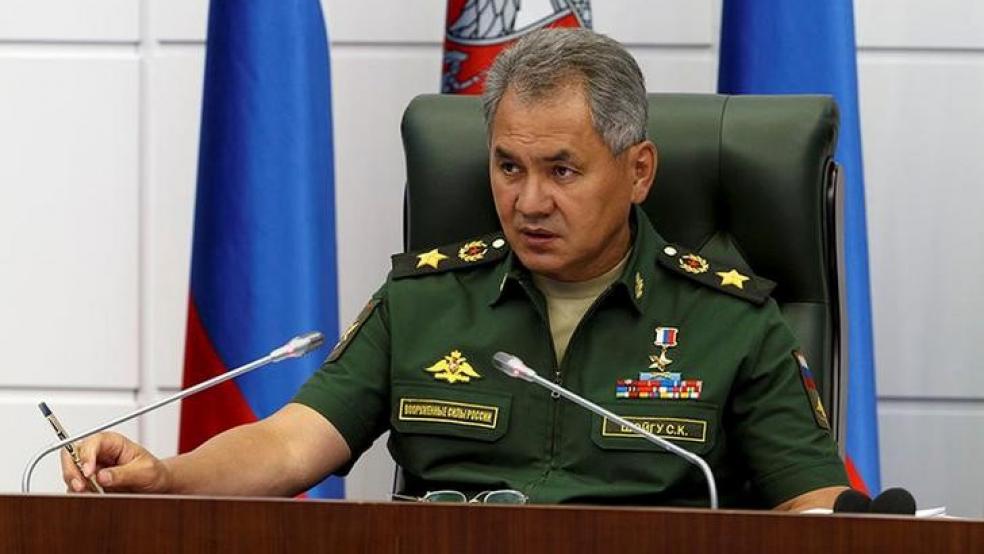Nearly a week after Turkish fighters shot down a Russian bomber that crossed into their country’s airspace for a few seconds, resulting in the death of one of its pilots, the tension between the two countries appears to be increasing. Kremlin-backed media on Monday reported that Russia’s Su-34 fighter-bombers operating in Syria were being armed with air-to-air missiles, for the first time since the Russian air force began operating there in September.
Russian forces in Syria are operating against rebel groups trying to topple that country’s dictator, Bashar al-Assad, as well as against the terror group ISIS. Neither ISIS nor the rebels have the ability to put planes in the air that can threaten Russia’s advanced military aircraft, which leaves little doubt that the addition of air-to-air capability – announced in banner headlines across Russia’s various government-controlled media portals – was meant as a message to Turkey.
Related: 14 Deadly Weapons Russia Has Sent To Syria
“The Russian Su-34 fighter-bombers today have for the first time taken on combat mission not only the OFAB-500 air bombs and KAB-500 guided bombs, but also short-and medium-range air-to-air missiles,” said Col. Igor Klimov, spokesman for the Russian Aerospace Forces according to TASS. “The planes are equipped with missiles for their defense.”
Klimov added that the missiles “are equipped with target seeking devices and are capable of hitting air targets within the range of 60 kilometers.”
Russian officials have repeatedly said that they have no intention of going to war with Turkey over the shoot-down, which President Vladimir Putin has described as a “stab in the back.” Turkey, a member of the North Atlantic Treaty Organization, would be entitled to call on the mutual defense commitments of the powerful alliance, which includes the U.S., Canada and most of Western Europe.
However, the addition of new air-to-air weapons on individual planes, as well as the introduction of powerful ground-based anti-aircraft missile systems last week, appear to increase the possibility of another incident, whether inadvertent or retaliatory.
Related: Obama Paid a High Price to Get Turkey to Fight ISIS
Turkey’s NATO allies are not particularly happy with the decision of Turkish President Recip Tayyip Erdoğan attack the Russian plane. (He claims to have ordered the strike himself.) The aircraft, a Su-24 bomber, was reportedly in Turkish airspace for approximately 17 seconds – a provocation, to be sure, but one seen as far removed from an act of war justifying the use of deadly force.
The Obama administration has been relatively tight-lipped about the incident. However, presidents Obama and Putin, both in Paris for the United Nations Climate Change Conference on Monday, met for half an hour on the sidelines of the event.
According to Kremlin spokesman Dimitry Peskov, "Obama expressed regret in connection with the incident involving the Russian jet downed by the Turkish Air Force in Syria.” He added, “Syria was discussed in detail, too, and both presidents spoke in favor of moves towards the start of political settlement.”
Also on Monday, the body of the Russian pilot killed in the attack was returned to Moscow, where it was met by an honor guard and top military officials, in a ceremony widely covered in the Russian media. The very public reception of the pilot’s remains contrasts sharply with the Kremlin-imposed media silence regarding the death of Russian soldiers fighting in Ukraine, where – despite Kremlin claims to the contrary – they are supporting armed rebels fighting against the Kiev government.
The difference in the media treatment of the pilot’s death and the repatriation of his remains suggest that Putin’s administration sees an advantage in stirring up patriotic fervor over the incident, something that would be difficult or impossible to do with regard to the conflict in Ukraine.





